Speaker Bios: Reporting on Refugees and Migration Through the Eyes of Children
Speaker bios for the Dart Center's September 2019 reporting institute on early childhood trauma, resilience and the developing brain, with a special focus on the international refugee crisis.
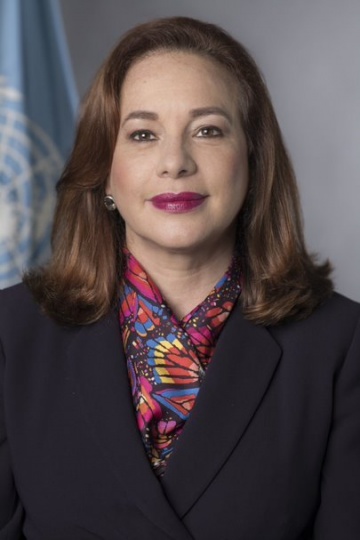
As Minister of National Defense of Ecuador, Ms. Espinosa Garcés participated in debates on women, peace and security, and promoted the creation of the South American Defense School of the Union of South American Nations, among other initiatives. Ms. Espinosa Garcés was Chair of the Group of 77 and China until January 2018, and also served as Chair of the Andean Community. In 2008, she was the first woman to become Permanent Representative of Ecuador to the UN in NY. She further went on to become Permanent Representative to the UN in Geneva Before beginning her political and diplomatic career, Ms. Espinosa was Associate Professor and Researcher at the Facultad Latinoamericana de Ciencias Sociales Sede Ecuador.
During her time in academia, she received scholarships and grants from the Latin American Studies Association, the Ford Foundation, the Society of Woman Geographers and the Rockefeller Foundation towards her research in the Amazon. She also received awards from the German Agency for Cooperation, Deutsche Gesellschaft fϋr Technische Zusammenarbeit (GTZ) and Natura Foundation for her research work. Ms. Espinosa Garcés has written over 30 academic articles about the Amazon region, culture, heritage, sustainable development, climate change, intellectual property, foreign policy, regional integration, defense and security. She has studies from Rutgers University. She holds a master’s degree in social sciences and Amazonian studies and a postgraduate diploma in anthropology and political science from the Facultad Latinoamericana.
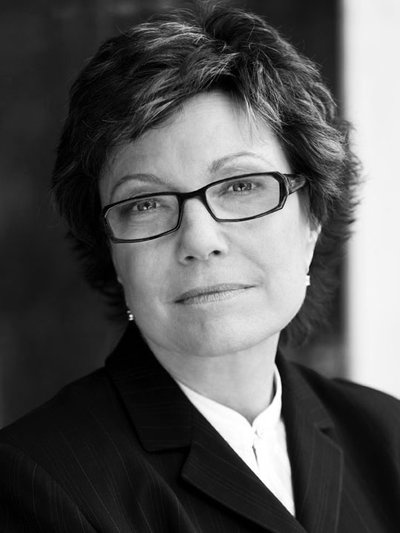
In 2009, Amos won the Edward Weintal Prize for Diplomatic Reporting from Georgetown University and in 2010 was awarded the Edward R. Murrow Lifetime Achievement Award by Washington State University. Amos was part of a team of reporters who won a 2004 Alfred I. duPont-Columbia University Award for coverage of Iraq. A Nieman Fellow at Harvard University in 1991-1992, Amos returned to Harvard in 2010 as a Shorenstein Fellow at the Kennedy School.
In 2003, Amos returned to NPR after a decade in television news, including ABC's Nightlineand World News Tonight, and the PBS programs NOW with Bill Moyers and Frontline.
When Amos first came to NPR in 1977, she worked first as a director and then a producer for Weekend All Things Considered until 1979. For the next six years, she worked on radio documentaries, which won her several significant honors. In 1982, Amos received the Prix Italia, the Ohio State Award, and a DuPont-Columbia Award for "Father Cares: The Last of Jonestown," and in 1984 she received a Robert F. Kennedy Journalism Award for "Refugees."
From 1985 until 1993, Amos spend most of her time at NPR reporting overseas, including as the London Bureau Chief and as an NPR foreign correspondent based in Amman, Jordan. During that time, Amos won several awards, including a duPont-Columbia Award and a Breakthru Award, and widespread recognition for her coverage of the Gulf War in 1991.
A member of the Council on Foreign Relations, Amos is also the author of Eclipse of the Sunnis: Power, Exile, and Upheaval in the Middle East (Public Affairs, 2010) and Lines in the Sand: Desert Storm and the Remaking of the Arab World (Simon and Schuster, 1992).
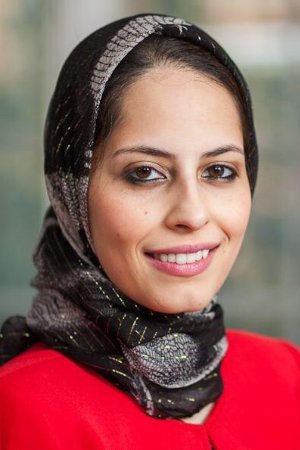
Prior to joining Fault Lines, Al-Arian worked as a news producer for Al Jazeera English, covering everything from Guantanamo Bay’s youngest detainee to the re-settlement of Iraqi refugees in the US. She received a BA in English literature from Georgetown University and an M.S. from Columbia's Graduate School of Journalism. Her work has appeared in The Nation, Salon, The Independent, and other publications. She is co-author of the book Collateral Damage: America's War Against Iraqi Civilians.
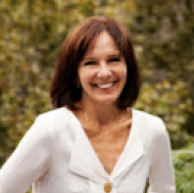
Most recently, Ammirati led response and recovery programs across five Save the Children disaster programs including Puerto Rico, North Carolina, and Florida in 2017 and 2018 and is currently serving as Team Lead for Save the Children’s Border Response. She holds an MA in Human Rights from Columbia University.
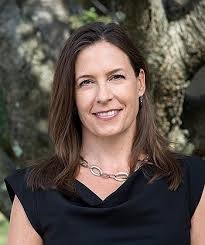
She is Principal Investigator of an intergenerational study of war in Sierra Leone (LSWAY). This research led to the development of a group mental health intervention for war-affected youth that demonstrated effectiveness for improving emotion regulation, daily functioning and school functioning. This intervention, the Youth Readiness Intervention (YRI), is now at the core of a scale-up study within youth employment programs now underway in collaboration with GIZ (the German Development Agency) and Government of Sierra Leone as a part of the NIMH-funded Mental Health Services and Implementation Science Research Hub called Youth FORWARD.
Dr. Betancourt has also developed and evaluated the impact of a Family Strengthening Intervention for HIV-affected children and families and is leading the investigation of a home-visiting early childhood development (ECD) intervention to promote enriched parent-child relationships and prevent violence that can be integrated within poverty reduction/social protection initiatives in Rwanda. Her team is currently working with the Government of Rwanda, the LEGO Foundation, Grand Challenges Canada and ELMA Philanthropies on implementation science to investigate a multi-level strategy (the PLAY Collaborative) to transition the intervention (Sugira Muryango) to scale across three Districts in the country. Domestically, she is engaged in community-based participatory research with Somali Bantu and Bhutanese refugee community partners to develop and evaluate family-based interventions to prevent emotional and behavioral problems in refugee children and adolescents resettled in the U.S.
She has written extensively on mental health and resilience in children facing adversity including recent articles in Child Development, The Journal of the American Academy of Child and Adolescent Psychiatry, Social Science and Medicine, JAMA Psychiatry, Pediatrics, the American Journal of Public Health and PLOS One. Her work has been profiled in the New Yorker, National Geographic, NPR, CNN.com and in an interview with Larry King on the program PoliticKing.
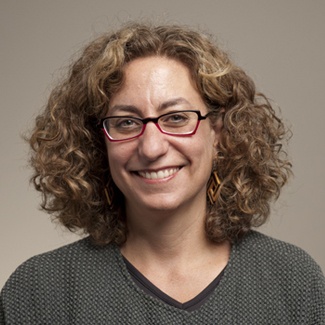
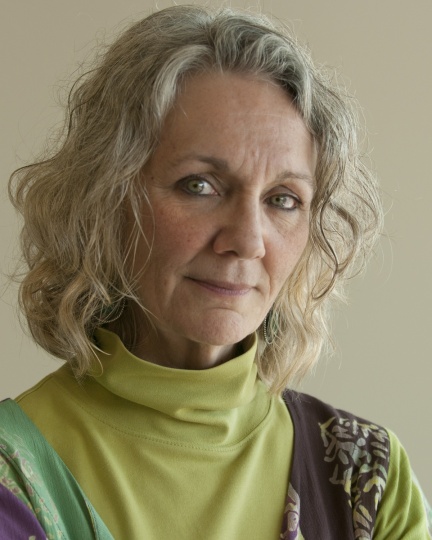
Donna De Cesare is an author, documentary photographer and educator known for her groundbreaking coverage of the spread of US gangs in Central America. Her photographs and testimonies from children in Guatemala and Colombia who are former child soldiers, survivors of abuse or the stigma of HIV have assisted UNICEF in developing protocols for photographing children at risk. De Cesare is an Associate Professor of Journalism at the University of Texas at Austin, a Master Teacher with the Gabriel Garcia Marquez Foundation for Latin American Journalism, and an Advisory Board member of the Knight Center for Journalism in the Americas.
For more than two decades, DeCesare photographed gang members and their families in Central America and in refugee communities in the U.S. In 2013, those images and stories were published in her book Unsettled / Desasosiego: Children in the World of Gangs, which has been favorably reviewed in publications including: AfterImage, the New York Times, The New Yorker, Mother Jones, PRI’s The World, and numerous NPR programs, including Latino USA with Maria Hinojosa.
Later that year, she was awarded the Maria Moors Cabot Award for her distinguished work and contribution to Inter-American understanding.

Drury explores how the interaction of genetic and epigenetic factors with early experience shapes neurodevelopment and long term health outcomes in children. Her clinical practice and translational research focuses on improving long-term outcomes in at-risk children and infants through an enhanced understanding of the interaction between early life experiences, the stress response systems, child health and neurodevelopment. She is the director of the Behavioral and Neurodevelopmental Genetics Laboratory (BANGL), which includes both a molecular genetics basic science “wet” laboratory and a translational research program.
She holds a B.A. in Religious Studies & Biology from the University of Virginia, an M.S. in Human Genetics from the University of Michigan, a Ph.D. in Genetics and Biometry from Louisiana State University Health Center and an M.D. from the same institution.
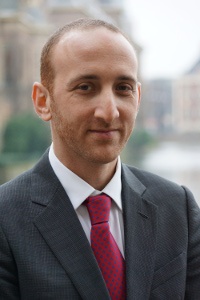
Following his time at McKinsey, Michael became a street outreach worker at Melel Xojobal, a local not-for-profit in southern Mexico where he worked directly with children and families displaced by violent conflict helping them gain access to education and healthcare. After serving in this role, he joined the organization’s leadership team helping to transform its ability to advocate for children with government and local business.
Michael joined the Bernard van Leer Foundation as a Programme Officer in 2007. He then held the positions of Programme Manager, Programme Director and Interim Executive Director. Over this period, Michael led the development of the Foundation’s advocacy and programming strategy across eight countries and internationally; has been featured in media such as the Financial Times, CNN, BBC and The Stanford Social Innovation Review; and has served as a strategic advisor to partners such as UNICEF, the World Health Organization and The Open Society Foundations, among others.
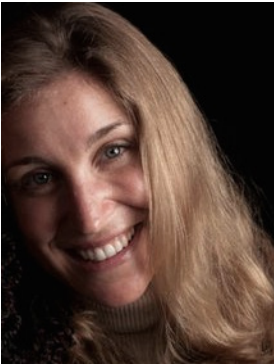
After returning to the U.S., she began working at the Earth Institute at Columbia University, where she became the Deputy Director of the Global Master’s in Development Practice Secretariat. Currently a Ph.D. candidate in applied psychology and human development at the University of Pennsylvania, Murphy has conducted research in early childhood development in Central America, Colombia, India, Kenya, Mexico, and Thailand. She has a B.A. from The Johns Hopkins University, an M.P.H. from the University of Pennsylvania, and an M.Ed. in international education policy from Harvard University.
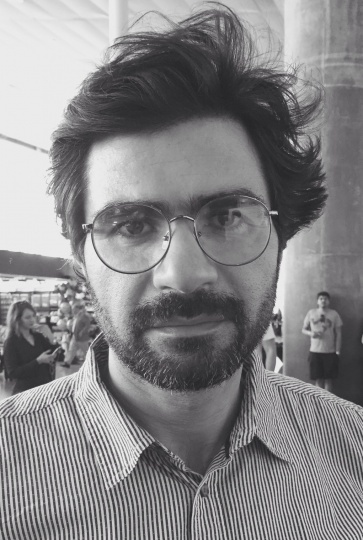
Nasser is a lecturer in communication at the Lebanese American University and the American University of Beirut. His research currently focuses on war trauma as reflected in the family drawings of Syrian refugees and on mapping the trauma impact among Arab journalists covering tensions in the Middle East.
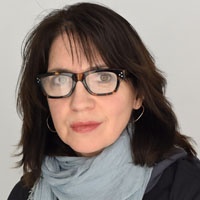
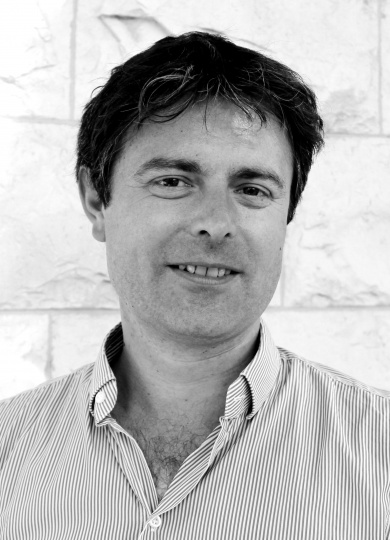
He has launched ventures with partners ranging from the UK Cabinet Office, British Council, Tate Modern and the Guardian Media Group, to Unicef, UNHCR and peace entrepreneurs in Afghanistan.
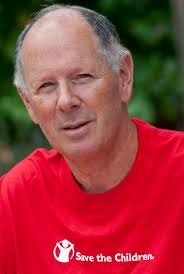
Gary Shaye has devoted more than 44 years to Save the Children’s work with children, families and communities around the world. In September 2017, Gary led the organization’s post-Hurricane Irma relief response in Florida in an emergency capacity and in April of 2018, he served as Team Leader in Puerto Rico for the response to Hurricane Maria. In April and May of 2019, he served as Team Leader in Colombia for the response to the Venezuelan crisis.
From April 2010 to February 2012, Gary was the Country Director in Haiti – during the critical period following the devastating 2010 earthquake. Prior to his assignment in Haiti, Gary spent seven years as Director in Bolivia. Previous assignments included 14 years in the Connecticut headquarters where he served as Vice President for International Programs.
He previously spent six years in Nepal where he established Save the Children’s country operations there and in neighboring Bhutan. His first assignment with the organization was in the Dominican Republic where he spent four years as the Country Director. Prior to joining Save the Children, Gary received his bachelor’s degree from Cornell University, his Master’s Degree from the School for International Training in Brattleboro, Vermont, and, following his graduation from Cornell, he served for two years as a Peace Corps volunteer in Cuzco, Peru. Gary is fluent in Spanish and speaks some Nepali.
An award-winning reporter on human rights, criminal justice and politics, Shapiro is a contributing editor at The Nation and U.S. correspondent for Late Night Live on the Australian Broadcasting Corporation’s Radio National. He is also Senior Executive Director for Professional Programs at Columbia Journalism School. His books include Shaking the Foundations: 200 Years of Investigative Journalism in America and Legal Lynching: The Death Penalty and America's Future.
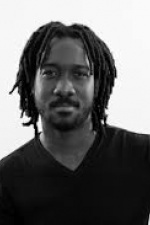
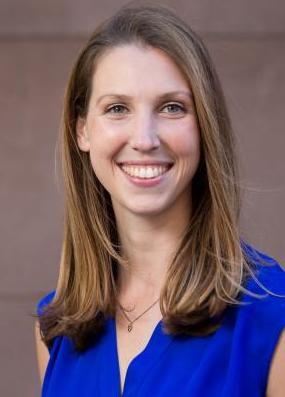
Before joining The New Yorker, Stillman wrote about America’s wars overseas and the challenges facing soldiers at home for the Washington Post, The Nation, newrepublic.com, Slate.com, and theatlantic.com. She co-taught a seminar at Yale on the Iraq war, and also ran a creative-writing workshop for four years at the Cheshire Correctional Institution, a maximum-security men’s prison in Connecticut.
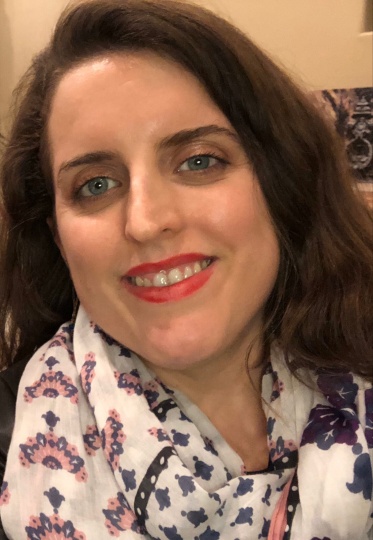
Prior to her work in the Middle East, Stone worked for the IRC in the Democratic Republic of Congo overseeing business development and grant management of an annual portfolio of over $70 million. Before working with the IRC, she worked in the US with a focus on social protection issues. Notably she worked on raising awareness in issues of intimate partner violence within refugee communities in Houston and served as an advocate for Women’s issues. Stone holds a Master’s Degree in International Affairs from Science Po, Paris and the School of International and Public Affairs at Columbia University as well as a Bachelor’s degree from the University of Texas at Austin.
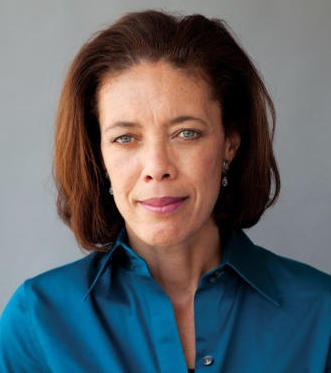
Thompson served as the Mexico City Bureau Chief for both The Times and The Baltimore Sun, and for her work in the region, she was a finalist for the Pulitzer’s Gold Medal for Public Service and the winner of the Maria Moors Cabot Prize, the Selden Ring Award for investigative reporting, an InterAmerican Press Association Award, and an Overseas Press Club Award. Prior to going to Mexico City for The Times, Thompson was part of a team of national reporters there that was awarded a 2000 Pulitzer Prize for the series “How Race is Lived in America.” Since joining ProPublica, Thompson’s work has been published in The New Yorker, The Atlantic, The New York Times and National Geographic. In 2018, her story about the Drug Enforcement Administration’s role in a Mexican massacre was nominated for a National Magazine Award. She teaches journalism at Columbia University’s Graduate School of Journalism
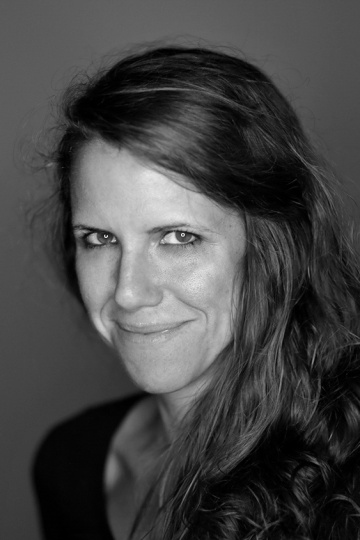
Toral's work has been recognized with two News & Documentary Emmy Awards, two Edward R. Murrow awards, a World Press Photo award, Pictures of the Year International, the Hillman Prize, RFK Human Rights Journalism Awards, PDN Photo Annual, NPPA Best of Photojournalism, the Webbys, Ortega & Gasset awards, the New York Press Club and others.
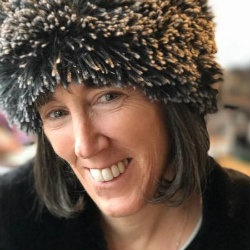
She is also an internationally accomplished journalist and an Emmy-award winning producer of documentaries for PBS and the BBC. In 2013, West launched an international donor-advised fund to support the development of early childhood mental health systems and workforce capacity in under-resourced areas of the world. The Two Lilies Fund shines a spotlight through its program development and public awareness campaigns (using film and podcasting) on model projects that are designed to strengthen the social and emotional development of young children and their caregivers. West is also an active member of Elevate Children, a global collaborative funders group.
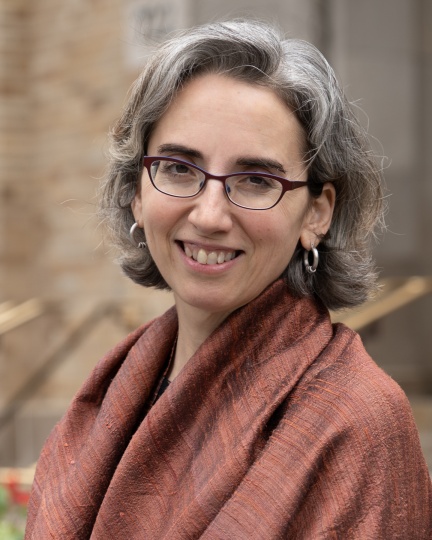
From 2000-2003, she was a Policy Analyst at the Migration Policy Institute in Washington D.C. and held a visiting research fellowship in law at the Refugee Studies Centre, Oxford University. Prior to that, she directed the international refugee work of the Lawyers Committee for Human Rights, during which time her work focused on the use of legal strategies to strengthen refugee protection in Africa as well as the particular issue of how international law should deal with refugees and asylum-seekers accused of committing serious international crimes. She has consulted on international human rights and forced migration issues for a number of organisations including Amnesty International, the Brookings Institute, Human Rights Watch and the United Nations High Commissioner for Refugees. She holds a Law Degree from Cambridge University and a Masters degree in International Relations and Middle East Studies from the School of Advanced International Studies, John Hopkins University.
































































































